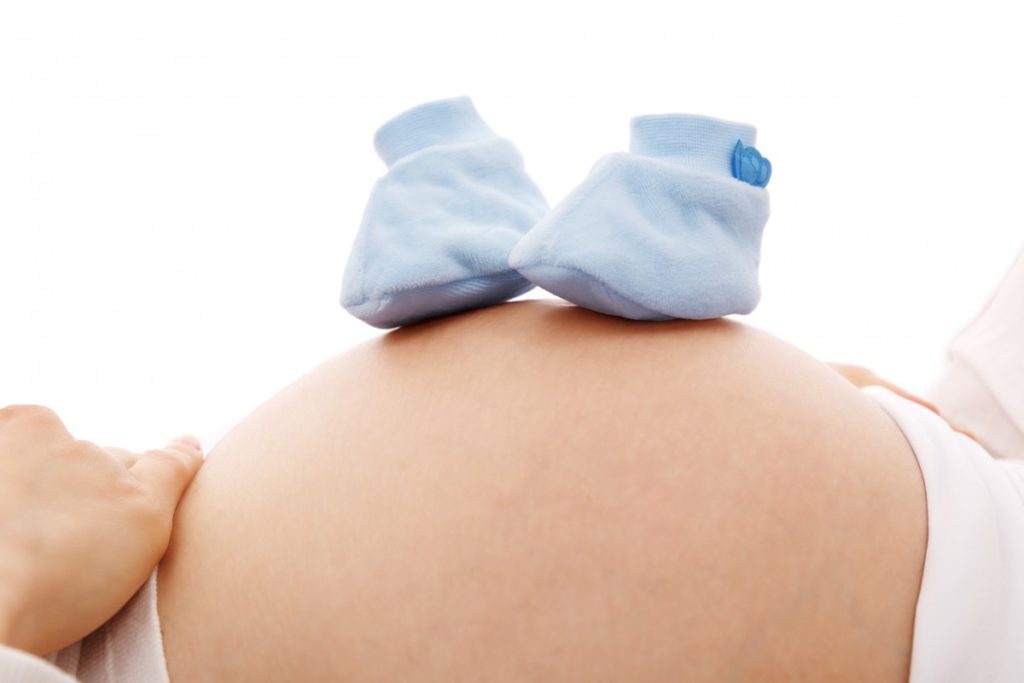A miscarriage is the loss of the embryo following spontaneous abortion. Miscarriage in the first trimester is often an isolated accident that will not impact the evolution of subsequent pregnancies. Let’s see closer below how a miscarriage starts…
Miscarriage: common in the first trimester
Statistics
Miscarriage is common in the first trimester. The majority of miscarriages occur before two and a half months of pregnancy.
Statistically, 15-20% of diagnosed pregnancies progress to a first-trimester miscarriage.
Causes of a miscarriage

Miscarriages that occur during the first trimester are in more than half of the cases due to a chromosomal abnormality making the egg non-viable. The embryo, which cannot develop normally, is then expelled from the mother’s body.
Please note: this chromosomal abnormality does not mean that future children are at risk of chromosomal malformation, nor do the parents carry problematic genes. It occurs naturally and regulates itself with miscarriage.
Other causes of miscarriage in the first trimester are infections contracted by the mother at the gynecological or general level.
The causes of miscarriage in the first trimester are rarely found in a subsequent pregnancy.
Miscarriages after the first trimester are:
of maternal origin (poor placental implantation, cervical gap…),
or of accidental origin.
Note: some miscarriages could be due to a vitamin B3 deficiency caused by a genetic mutation of the NAD molecule that participates in the proper development of the fetus and the synthesis of DNA (source: an Australian study of 2017).
Miscarriage: starting a new pregnancy
Delay
There is no precise time limit before starting a new pregnancy, but it is often recommended to wait 4 or 6 months to allow the body to regain strength and mourn the previous pregnancy.
This period is shorter if the mother is over 35 years old because of the decrease in fertility after this age.
Treatment
No medical intervention is necessary after a miscarriage with complete and spontaneous expulsion of the fetus (complete removal is confirmed by ultrasound).
If the expulsion of the fetus is incomplete, hormonal treatment to induce contractions can be administered.
Note: If there are still residues despite this treatment, a vacuum aspiration or curettage is performed under anesthesia.
Miscarriage: the psychological repercussions

Miscarriages can have severe psychological repercussions for the mother and the father. Indeed, one month after a miscarriage:
nearly a third of women suffer from post-traumatic stress (and 18% still do, nine months later);
a quarter of women suffer from anxiety (and 17% still do, nine months later);
one in 10 women suffer from depression (and 6% still do, nine months later);
partners may suffer from psychological distress.
This psychological impact may require support from a psychologist or medication.
Good to know: usually, post-traumatic stress syndromes are effectively treated by cognitive-behavioral therapy, but no approach is specifically adapted for this situation. It may be beneficial for the parents to name the child lost in a miscarriage.
The symptoms of miscarriage are mainly bleeding and pain in the lower abdomen.
Symptom of miscarriage: bleeding
The bleeding is at first very weak, then becomes abundant. At first, it is a painless red blood loss. But having blood loss during pregnancy does not necessarily mean miscarriage. It is prevalent to have small amounts of bleeding during the first trimester.
However, any bleeding during pregnancy should be reported to a doctor. He or she will be able to determine whether or not it is a miscarriage by performing an examination, a blood test (β HCG level), and an ultrasound.
In case of bleeding in a woman with a negative rhesus, an injection of gamma globulin (anti-rhesus positive) may be necessary. These gamma globulins destroy any red blood cells of the fetus present in the mother’s blood before they can trigger a reaction with the production of anti-rhesus antibodies. The production of these antibodies can lead to severe anemia in another newborn during a subsequent pregnancy.
Lower abdominal pain is a possible symptom
The pain is usually not too severe and is similar to menstrual syndrome pain (during menstruation). The pain of miscarriage can sometimes be mistaken for digestive problems such as stomach cramps or colonic spasms.
Bleeding and pain: think about ectopic pregnancy
The same symptoms (bleeding and pain in the lower abdomen) suggest an ectopic pregnancy.
If a woman presents these symptoms and does not know if her pregnancy is well implanted in the uterus, she must consult a doctor quickly in case it is an ectopic pregnancy. Ultrasound technology will allow visualization of the egg and ensure it is intrauterine.
Is there a treatment for miscarriage?
When a miscarriage is in progress, there is, unfortunately, no treatment that can stop it. However, there are antispasmodic treatments that can help to calm the pain.
A miscarriage is an event that can have a heavy psychological impact that may require taking anxiolytics or seeking psychological support.
The important thing to remember is that a miscarriage does not prevent a subsequent pregnancy.


